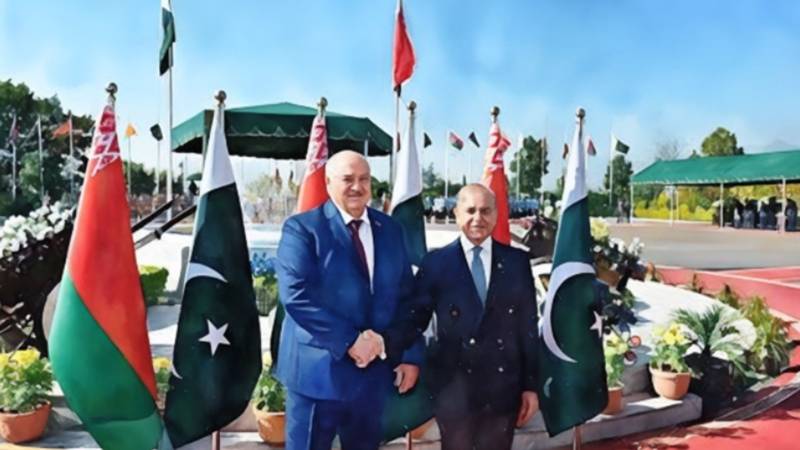
The diplomatic relationship between Pakistan and Belarus has evolved significantly since its inception in 1991, following the dissolution of the Soviet Union. Recent developments indicate a renewed commitment to enhancing their economic cooperation as both countries celebrate the 30th anniversary of their diplomatic ties.
Relations between Pakistan and Belarus were established with the collapse of the Soviet Union and Pakistan was one of the first countries to recognise Belarus. This relationship has grown into a multifaceted one — a relationship involving trade, defence as well as cultural exchanges. A byline of this partnership has been the recent official visit of Belarusian President Aleksandr Lukashenko to Pakistan, which has resulted in major agreements for the strengthening of economic cooperation During the visit of President Lukashenko, the two nations inked 15 agreements and MOUs.
One feature of these agreements is the “Roadmap for Comprehensive Cooperation” for 2025-2027. It is a roadmap which provides a strategic framework that would deepen economic relationships through high level meetings, intergovernmental commissions and targeted collaborative projects among others. The two countries have agreed to expedite the implementation of bilateral accords aiming to boost cooperation in different areas including trade, agriculture, food security, defence and technology. Prime Minister Shehbaz Sharif emphasised the need for concrete actions following the signing of these agreements. In view of Belarus' high level of agricultural machinery manufacturing, and Pakistan's agriculture-based economy, both sides agreed to develop joint ventures in agricultural machinery production. The aim of this collaboration is to use Belarus’ experience in manufacturing high tech agricultural equipment adapted to Pakistan’s needs.
The two nations also agreed to consider ways of boosting cooperation in vehicle sales, manufacture, and servicing. It also involved establishing further sales network of Belarusian agricultural machinery in various Pakistani cities through partners of local organisations.
In view of Belarus' high level of agricultural machinery manufacturing, and Pakistan's agriculture-based economy, both sides agreed to develop joint ventures in agricultural machinery production
Cooperation in the technology and the e-commerce sector were fostered by these agreements. This includes initiatives aiming to improve the vocational educational and training programs to foster development of a skilled workforce which can support this understanding. It recognised that the environmental challenges in climate change mitigation and disaster management should be addressed by both countries working collaterally. It involves sharing of best practice and technologies for sustainable development.
Another big focus area was to enhance bilateral trade in pharmaceuticals and medical devices. The two nations signalled their commitment to facilitate trade by addressing regulatory barriers that hinder market access of health-related products. To lay the roadmap for future cooperation more specifically, a blueprint is provided in the form of 'Roadmap for Comprehensive Cooperation'. This strategic framework, however, does not intend solely to strengthen economic relations between the two countries; but also, to facilitate broader political dialogue and cultural exchanges between the two countries. Despite the promising outlook for Pakistan-Belarus bilateral relations, several challenges like trade barriers, market access and political stability remain pertinent.
Tariff and non-tariff barriers will need to be addressed if trade flows are to be made smoother between the two countries. In addition, promoting growth of sectors such agriculture and pharmaceuticals necessitates that mutual compliance with national regulations is upheld.
Bilateral relations can be impacted by the geopolitical landscape, both countries therefore need to moderate regional dynamics if they are to go ahead and pursue their economic interests.
To conclude, Pakistan's strategic partnership with Belarus represents a promising avenue for economic growth and development. It is a large step forward in the two countries' diplomatic relationship, from political ties to robust economic cooperation. Through the use of the each other’s strengths, both countries can promote the development which has the ability to sustain the population of each. It is important that they remain committed to overcoming challenges while maximising their collaborative potential in an increasingly interconnected world.

